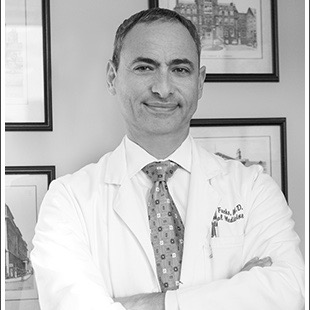A lot of people who believe they have food allergies don’t. What’s worse, a lot of people who were told by their doctor they have food allergies don’t.
An article in the current issue of the Journal of the American Medical Association tried to review the existing literature on food allergies to standardize how food allergies are diagnosed. What the study found was an inconsistent jumble of unreliable test results and methods.
First, to clear up some of the confusion, we have to understand the difference between food allergy and food intolerance. A food allergy is a reproducible adverse reaction to a specific food that is mediated by a specific antibody that your body makes. It usually results in a rash or difficulty breathing and can be life-threatening. The article estimates that more than 1% or 2% of the population (but less than 10%) have true food allergies.
Food intolerance is any other adverse effect from food. Lactose intolerance, for example, is the inability to digest lactose, the carbohydrate in dairy products. It leads to abdominal discomfort and diarrhea whenever dairy foods are ingested. It is not an allergy. Neither is acid reflux, which can be exacerbated by certain foods, or gustatory rhinitis, in which spicy foods cause a runny nose. These are all food intolerances. So if you get heartburn every time you eat mint, you’re not allergic. You just have acid reflux that is exacerbated by mint.
But we doctors are a more important source of the confusion. Unfortunately, there is no easy way to accurately test for food allergies. The most common tests are skin prick tests, in which small amounts of the food proteins are injected into the skin, and blood tests which look for antibodies to certain food proteins. The problem with both tests is that they are very inaccurate and yield many false positives – the tests can be abnormal even when the person is not allergic. So based on these tests many patients have been incorrectly told that they have a food allergy.
The most accurate way to diagnose a food allergy is a food challenge – a patient is given the test food in a disguised form so that she doesn’t know if it is the suspected allergen or a placebo. Then the patient is observed. This is accurate but impractical. The patient must be under observation for a prolonged time in a facility that is equipped to handle a potentially life-threatening allergic reaction.
So the current state of the field is disorganized. There is no standardized accepted way to accurately test for food allergies, and without that foundation, no way to study them. The authors conclude
“There is voluminous literature related to food allergy, but high-quality studies are few. Prime needs for advancement of the field are uniformity in the criteria for what constitutes a food allergy and a set of evidence-based guidelines on which to make this diagnosis.”
Learn more:
Los Angeles Times Booster Shots: ” target=”_blank”>Doubt Is Cast on Many Reports of Food Allergies
Journal of the American Medical Association article: ” target=”_blank”>Early Disaster Response in Haiti: The Israeli Field Hospital Experience
Important legal mumbo jumbo:
Anything you read on the web should be used to supplement, not replace, your doctor’s advice. Anything that I write is no exception. I’m a doctor, but I’m not your doctor despite the fact that you read or comment on my posts. Leaving a comment on a post is a wonderful way to enter into a discussion with other readers, but I will not respond to comments (just because of time constraints).






















 More news and opinions than at a Shabbat dinner, right in your inbox.
More news and opinions than at a Shabbat dinner, right in your inbox.